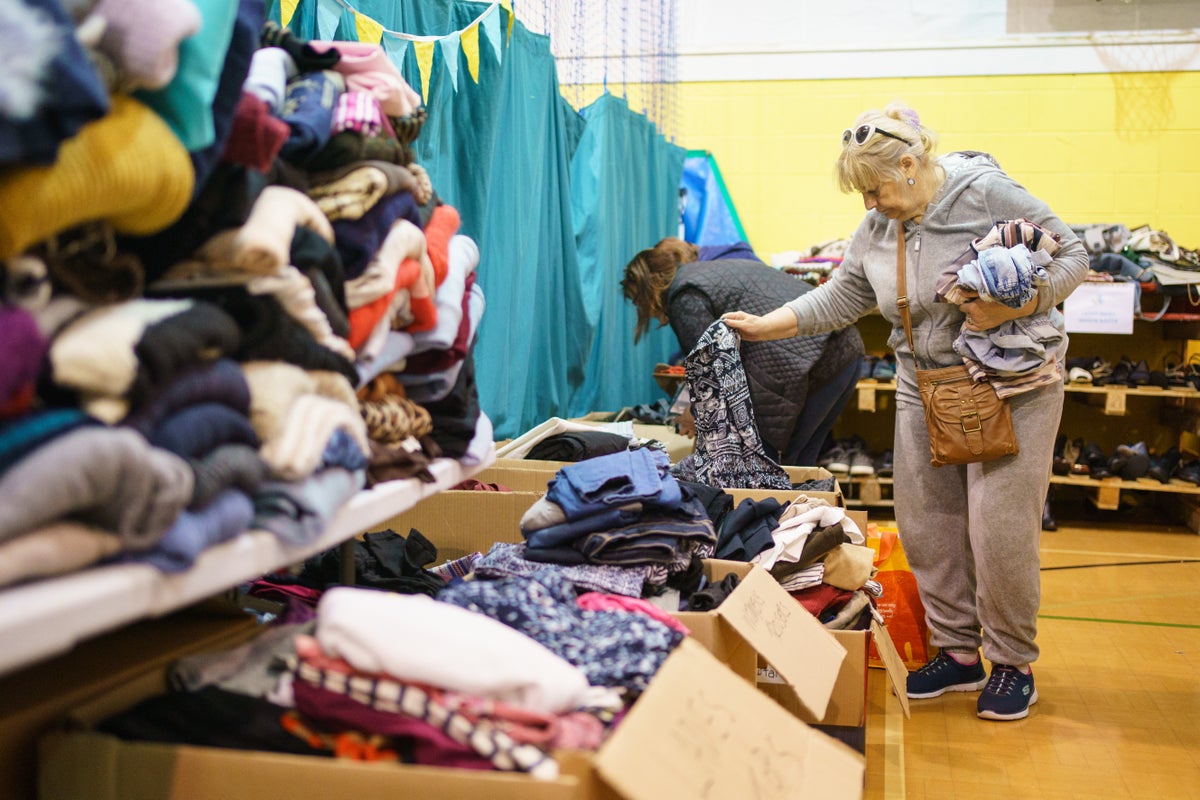
Almost a third of Homes for Ukraine hosts have reported struggling with the rising cost of living, according to the first survey by the Office for National Statistics (ONS) of those taking part in the scheme.
Responding to the report, campaigners warned that Ukrainian refugees are at “risk of homelessness” because of problems with their housing arrangements.
Some 21 per cent of current and previous sponsors reported that the soaring cost of living was affecting their ability to provide support to Ukrainian refugees “quite a lot”. A further 9 per cent said it affected their ability to help “very much”, while 41 per cent said that rising living costs had affected their ability to provide support “a little”.
The CEO of Refugee Council, Enver Solomon, said that the “additional burden of cost of living on families here in the UK poses a further threat to vulnerable Ukrainians”.
The Local Government Association called on ministers to increase the £350 a month “thank you payment” given to hosts “so sponsors can be sure it’s not costing them”.
Cllr James Jamieson warned that, as the six-month initial placement period ends, “there is a significant risk that – even if rematching is available – many Ukrainian families may need to present as homeless because of a lack of sponsors or other options”.
The survey, which received responses from 17,702 people, found that some sponsors have had to leave the Homes for Ukraine scheme because they can no longer afford to take part in it.
Of the hosts who signed up to house Ukrainians for six months or less, 23 per cent said they did not plan to continue because of the rising cost of living or because they could no longer afford to do so.
Mr Solomon said that the organisation is “already aware of hundreds of Ukrainian refugees, predominantly women and children, at risk of homelessness”. This is for a range of reasons, including a breakdown in relations between the host and the guests.
“We welcomed the fact that thousands of British people came forward to open their homes, however these hosting arrangements were always going to encounter challenges in the long term,” he said.
Almost one in five, or 19 per cent, of people told the ONS that they had intended to provide accommodation for six months rather than for a longer period of time. The most common reason for stopping, given by 58 per cent, was having only intended to provide short-term accommodation.
It comes as Money Saving Expert founder Martin Lewis hit out at Conservative leadership candidate Liz Truss’s proposed economic policies, calling them “a sticking plaster on a gaping wound”.
He warned that soaring energy bills are a “national crisis” that will leave millions “destitute” this winter unless the government urgently steps in to help.
Are you a Homes for Ukraine host struggling with the cost of living crisis? Email holly.bancroft@independent.co.uk
Almost all current or previous Homes for Ukraine sponsors who responded to the ONS survey – 99 per cent – said that they had incurred additional costs as a result of hosting Ukrainians.
In particular, 91 per cent reported an increase in the amount they had to pay for utilities, such as water, gas and electricity.

Most of the hosts had welcomed Ukrainian refugees into their own homes, rather than a spare or rented property, and most sponsors had met their guests on social media.
A significant proportion of sponsors were working full-time while hosting, with 43 per cent of respondents in this position, whereas just over one-fifth of people, 21 per cent, were retired.
A slight majority of hosts (56 per cent) were female.
When asked about the challenges of hosting, the most commonly reported issue was helping guests apply to get benefits, with 53 per cent of sponsors finding this difficult.
Commenting on the findings, Tim Gibbs of the ONS said: “As we come up to the sixth month since the Homes for Ukraine scheme was introduced, it is useful to find out what the experience of hosts has been.
“We see a lot of generosity and goodwill in what hosts report doing for their guests. The majority are still hosting, and many indicate a willingness to host beyond the initial six months.
“However, we also see the additional work and expense involved in hosting, with some saying more or ongoing support would be welcomed.”
Many of those surveyed, 23 per cent, said they intended to provide accommodation for longer than 12 months. They also said they provided a lot of extra help to families, such as showing them the local area.
More than 43,000 sponsors were invited to take part in the ONS research.
Last week The Independent reported that a Ukrainian family who had been kicked out of their home weeks after arriving in the UK had been helped by a good samaritan.

Maxim and Olga Hyryk had been living in fear that they could be made homeless after their landlords in Fareham, Hampshire suddenly told them to leave. The family had fled Russia’s invasion and come to the UK under the Homes for Ukraine scheme.
A British midwife has now offered the family of nine a house, which she was using as a holiday let, rent-free.







